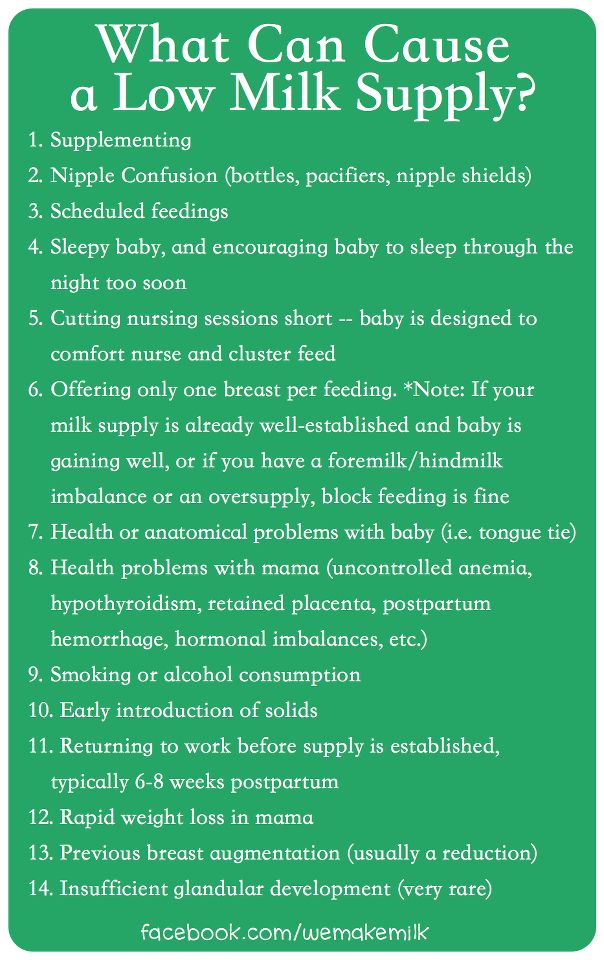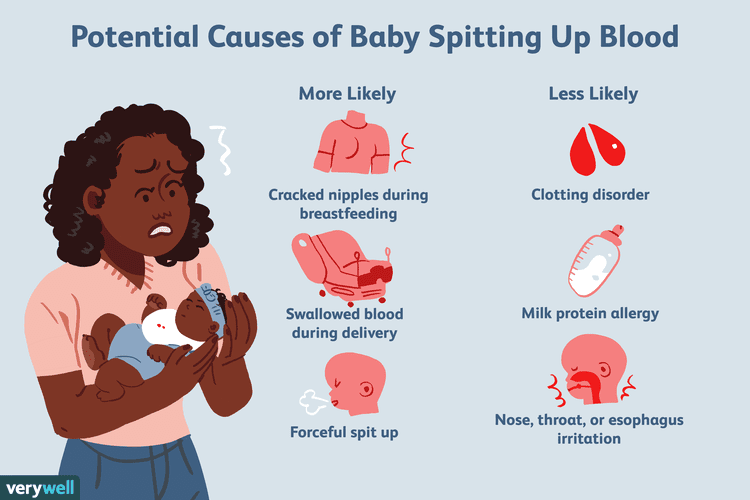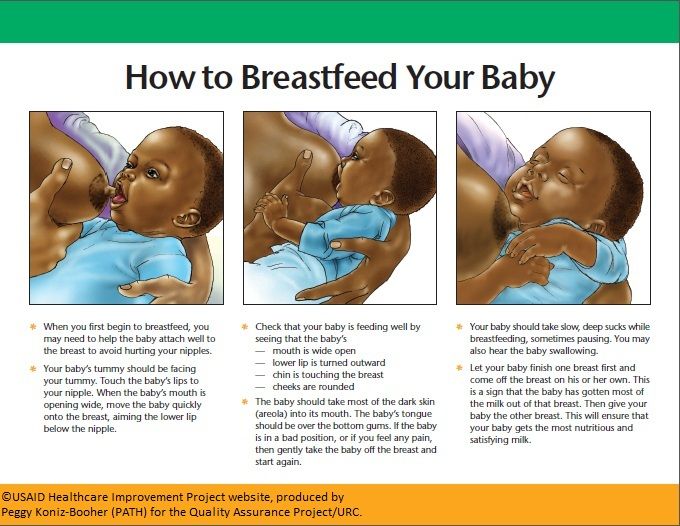Baby sleep through night feeding
How to Balance Feeding and Sleeping Through the Night
We want to make sure you and your child are getting the good sleep you deserve, so we spoke with a lactation consultant to help parse out how much your baby truly needs to be eating, and when it’s okay to start night weaning.
Your Rockin’ Blinks Crib Sheet:
- Don’t stress about a feeding or sleeping schedule in those early newborn weeks. Your feeding habits will not impact their long-term sleep at this stage.
- After about 3 months, most babies do not need to be awakened to feed overnight and will wake up on their own when and if they’re hungry.
- Some babies begin to drop their night feedings by 3 months but others may need night feedings until 6 months or beyond. Your pediatrician can help you determine if it’s safe to night-wean.
- If your baby feeds to fall asleep and this is a problem for you, try re-arranging their bedtime routine to reduce the association of feeding and sleep.
For parents of tiny babies, getting an eight-hour stretch of sleep at night is #goals. It might feel like that day may never come, but with the right expert tips, you’ll be able to feed your baby what they need and work towards longer, more restful stretches of sleep.
For the first few months, we all understand that waking up to feed your baby is part of the job. Their bellies are tiny and need to be filled frequently. But at a certain point…. we all need sleep!
You should always talk to your baby’s pediatrician to make sure it’s safe for you to begin night weaning, but sleep experts say between the 6 and12-months, your child should be able to make it through the night without waking to eat, thanks to the development of their circadian rhythm, their consolidation of night sleep, and the reduction of hunger hormones.
In the meantime, we asked lactation counselor and doula Jada Shapiro for some sleeping and feeding tips and tricks you need to make it through the night. Jada is the founder of boober, a platform where parents can find classes and care providers like lactation consultants and postpartum doulas. Here’s her expert tips on how parents and baby can best survive the long nights of feedings at every stage.
Jada is the founder of boober, a platform where parents can find classes and care providers like lactation consultants and postpartum doulas. Here’s her expert tips on how parents and baby can best survive the long nights of feedings at every stage.
Newborn:
In this stage, your baby will need to eat around the clock. Your baby should be eating every one to three hours; as many as 8-15 times a day! For these first few months, babies have not developed their regular sleeping patterns yet, so you shouldn’t be concerned that their feeding schedule will impact their amount of sleep overall. You can’t nurse too frequently in the fourth trimester.
- During the first few weeks, your breastfed baby will need to feed every 1-3 hours, which means you should be prepared to feed every time your baby wakes. You can expect more frequent feedings at night. If your newborn baby is sleeping for more than 3-hour stretches, talk with your pediatrician to see if you should be waking your baby.
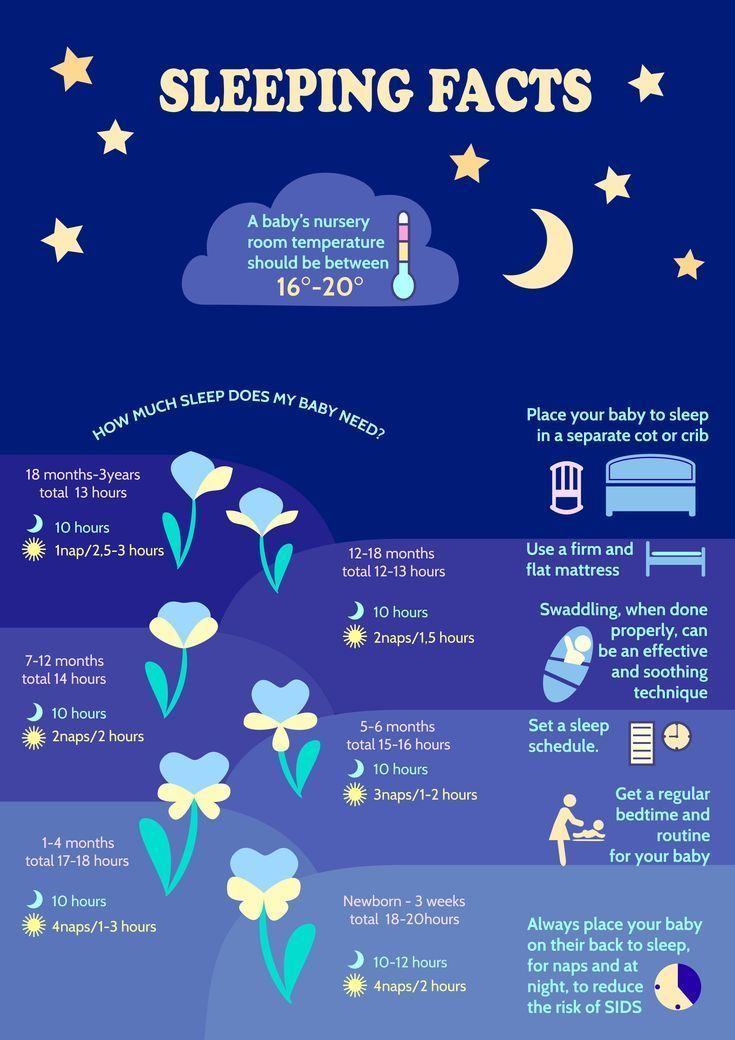 . Lactating people make the most milk overnight in these milk-building days, so following the baby’s lead will ensure a good milk supply in most people.
. Lactating people make the most milk overnight in these milk-building days, so following the baby’s lead will ensure a good milk supply in most people. - Bottle feeding parents should also feed every 1-3 hours or whenever baby is hungry. Be sure to follow your baby’s lead and pause feeding whenever they seem like they need a break (pulling away, fussing, trying to turn to the side), or if you see milk or formula flowing out of the side of their mouth.
PRO TIP: Whether breastfeeding or bottlefeeding, you’ll want to feed your baby at the earliest sign of hunger to stave off the disruptiveness of an angry hunger cry. We know you’ll likely be asleep, but if your parent-senses kick in and you wake up just before baby, look for signs of hunger like stirring, mouth motions, your baby sticking their tongue out, rooting, or putting their hands to their mouth.
3-6 months:
Some babies are able to drop their night feeds at this age. If your baby is able to do this: congratulations! If not, don’t worry. It’s totally normal to still need to feed overnight right now.
If your baby is able to do this: congratulations! If not, don’t worry. It’s totally normal to still need to feed overnight right now.
- After the first 3 months, the amount of times between feedings can increase dramatically and the length of feeds can shorten significantly as babies get more efficient. The breastfed baby at this age will tend to feed every 3-4 hours, even overnight, and the formula fed baby tends to take 4-6 ounces about 4-6 times per day.
- Whether breast or bottle feeding, you may notice that your baby starts to pull off the breast or pull away from the bottle to look around more or stops feeding at every loud sound. Babies begin to get way more curious about their environment and this is exciting and normal. If your baby is so distracted that feeding has become frustrating, try turning toward a quiet corner when you feed so there’s less to look at or go into a calm, quiet, darkened room. Some parents even turn to using a shawl to cover their baby so they are not distracted by the sights of the room.

PRO TIP: In the 3-6 month range, parents do not need to wake their baby to feed and should trust that the baby will wake when hungry, provided your baby is gaining weight well according to your pediatrician and making sufficient diapers. But you can consider adding in a dream feed to tide them over a little longer. Dream feeding is when you gently wake your sleeping baby for a quick drowsy last feed of the day, giving your baby more calories right before you go to sleep. Babies that are gently roused and nursed without fully waking up, often sleep a bit longer at night.
6-12 months:
At this age, most night wakings are no longer necessarily driven by hunger, though a baby who is regularly fed at night will continue to expect to be fed.
- Six months is often when parents consider introducing solid foods. When your baby begins eating solid foods, this will slowly begin to reduce the amount of nursing or bottle feeding your baby needs .

- Breastfed babies tend to feed every 3-4 hours, even after introducing solid foods.
- Bottle Fed babies tend to consume 6 to 8 ounces 4-5 times per 24 hours, and should not drink more than 32 ounces per 24 hours.
- If you’re trying to get your baby to sleep longer at night, try feeding your baby more frequently during the day. Add in a little extra nursing or bottle sessions here and there to be sure they’re getting maximal caloric intake during the waking hours. Babies this age can sleep in longer stretches.
PRO TIP: If your baby has been feeding until they fall asleep, consider rearranging your bedtime routine and separate feeding from sleeping by putting the feed at the beginning of your routine.
12 months and beyond:
After 12 months, if your little one is still feeding overnight, but you would prefer that they didn’t, you can begin to slowly wean them off night feeds by nursing more frequently during the day with an extra session before bedtime. This way you can ensure your baby is still getting what they need calorically.
This way you can ensure your baby is still getting what they need calorically.
- If your baby is still waking during the night, you can offer other comfort measures besides feeding like patting, speaking in a soothing voice, or offering a sip of water. You can also calmly and lovingly tell them no, not now.
- Now is a good time to switch your last nighttime feeding to earlier in your bedtime routine, which will help reduce your child’s feeding to sleep association.
- If you are breastfeeding, remember that night weaning is a transition. Giving yourself time to go through this process will allow both your body and your baby to adjust.
PRO TIP: If you’re breastfeeding and still sleeping with your baby right next to your bed, make your breasts less accessible by wearing something different to sleep in or try sleeping a bit further away (for example, switch sides of the bed with your partner).
Or even take a few nights sleeping in another room.
Sleeping Through the Night • KellyMom.com
Should my baby be sleeping through the night?It’s so common for mothers to worry when their babies don’t sleep through the night. After all, everyone knows they’re “supposed to.” Some doctors recommend nighttime weaning and “cry it out” methods if your baby is not sleeping through the night by 6 months or even earlier. Even when the mom herself has no problems with baby nursing at night, she still worries that this is a problem, since American society seem to consider it one. There are books all over the bookstores with advice on solving so-called “sleep problems.”
Phronsie Howell CC flickr
First, please ignore what everyone else says about your baby’s sleep habits and what is “normal.” These people are not living with you or your baby. Unless your doctor sleeps in the next room and your baby is keeping him awake every night, he has no reason to question a healthy baby’s sleep habits.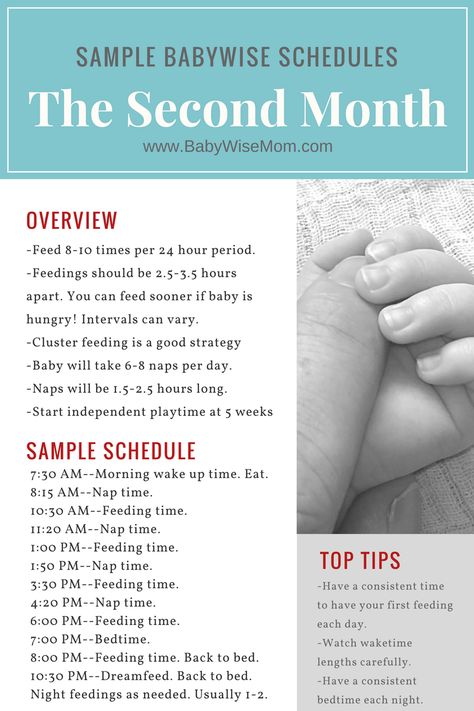 If you and your baby enjoy nighttime feedings, then why not continue? It’s a great way to have time with her, particularly if you are apart during the day.
If you and your baby enjoy nighttime feedings, then why not continue? It’s a great way to have time with her, particularly if you are apart during the day.
.
Every baby is different, and some sleep through the night earlier than others (schedules or food usually have nothing to do with this). Your baby may be hungry (keep in mind that breastmilk digests in less than 2 hours) or she may just want time with you. Babies whose mothers work during the week often nurse more at night and on weekends, perhaps to reconnect with mom.
Many doctors tend to look at night nursing only from a nutritional standpoint, but this is only part of the story. After the first few months, your baby will begin to associate the breast with far more than just a way to satisfy hunger and thirst. It becomes a place of comfort, security, warmth, closeness, and familiarity. The act of nursing is not just nourishing; it is nurturing. Keep in mind that these needs are every bit as real as baby’s physical ones, and having them met is every bit as needful to baby’s overall development.
If the amount that your child sleeps and nurses at night isn’t a major problem for you, then there’s no reason to try to change anything. You are NOT doing a bad thing by nursing on cue; you are doing a wonderful thing for your baby. When you comfort baby at night, you are not teaching her a bad habit: you are teaching her that you are there for her when she needs you — Is security a bad habit?
What is normal when it comes to baby’s sleep?It is common for breastfed babies to not sleep through the night for a long period of time. On the other hand, some breastfed babies start sleeping through the night when a few months old.
Both of my children nursed once (occasionally more) at night through their second year. Since this doesn’t bother me, I did doing nothing to change it. We co-sleep, and neither my baby nor I generally wake up completely when she nurses. Both started sleeping through the night on their own, when they were ready.
Your baby will begin to comfort herself and to sleep for longer stretches at her own developmental pace. If your baby wants to nurse at night, it is because she DOES need this, whether it’s because she is hungry or because she wants to be close to mom. Beginning to sleep through the night is similar to a developmental milestone (like walking or toilet training) that your baby will reach when she is ready. Trying to force baby to reach this before her time may result in other problems later on.
If your baby wants to nurse at night, it is because she DOES need this, whether it’s because she is hungry or because she wants to be close to mom. Beginning to sleep through the night is similar to a developmental milestone (like walking or toilet training) that your baby will reach when she is ready. Trying to force baby to reach this before her time may result in other problems later on.
If you can try to take a more relaxed approach and trust that it will come in time, you’ll see your baby eventually become a good sleeper. You’ll be able to rest peacefully in your heart and mind knowing that she reached this in her own time when she felt secure enough to do so, not because he had no other choice but to quiet herself because no one would come.
Probably one of the main reasons that night-waking babies are such a big issue is that parents don’t have realistic expectations of the sleep patterns of babies. We are bombarded with magazine articles and books that perpetuate the myth that babies should not have nighttime needs. Babies were designed to wake up often at night to feed and cuddle– keep in mind that many adults wake during the night, too. If our expectations for babies were not so different from our babies’ expectations for themselves, much of this “problem” might disappear.
Babies were designed to wake up often at night to feed and cuddle– keep in mind that many adults wake during the night, too. If our expectations for babies were not so different from our babies’ expectations for themselves, much of this “problem” might disappear.
See Studies on normal infant sleep for more information on what is normal.
Why do babies wake at night?Babies wake at night for many reasons, and they often start waking at night after sleeping through for a few weeks or months. Some of the reasons for night waking (in no particular order) are:
- baby wants more time with mom
- teething
- developmental advances (for example: waking more often right before or after learning to turn over, crawl or talk)
- illness, allergy, diaper rash, eczema
- hunger (including growth spurts)
- reverse cycling: Some babies whose moms are away during the day prefer to reject most/all supplements while mom is away, and nurse often during the evening and night.
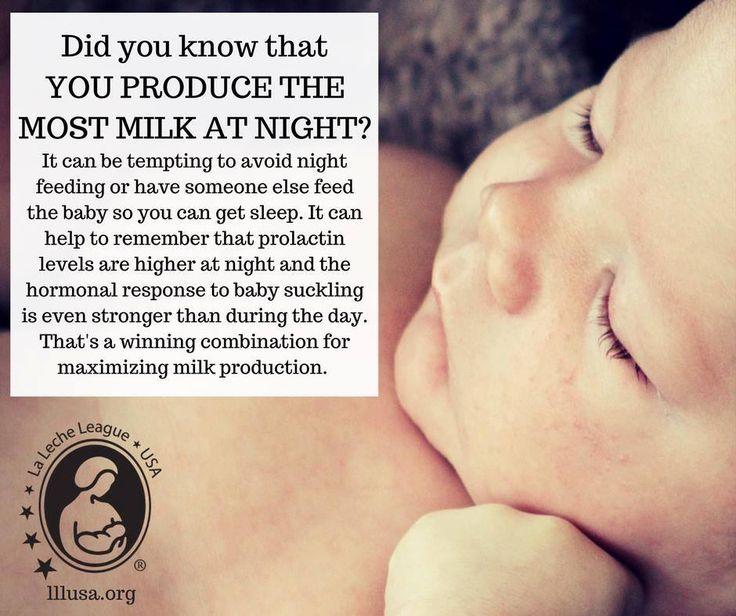 If mom is very busy during the day or if baby is very distracted, this can also lead to reverse cycling.
If mom is very busy during the day or if baby is very distracted, this can also lead to reverse cycling.
When your child nurses more often at night, go through this checklist to see if you can figure out what might be going on. Sometimes there may be more than one thing causing the night waking.
What about giving formula or solids at night to help baby sleep better?See Will giving formula or solids at night help baby sleep better?
Gentle methods for encouraging less night nursingSee Night Weaning, which also includes many suggestions for maximizing sleep in younger babies who still need to breastfeed frequently.
Does night waking last forever?
Remember that night waking in babies and young children is normal and temporary!
Children grow out of night waking, even when we do nothing to discourage it. This period of time will be a very tiny part of your child’s years with you.
Your goal is to maximize sleep for everyone in the family, while respecting the needs of your child.
If you’re meeting this goal, then ignore anyone who suggests that you do things differently. If your sleep situation is not working (or stops working) then you can always do things differently. All parents find that they change the way they do things as their child grows older and reaches different developmental stages – sleep is just another thing that changes as your child grows.
More information
@
- Wakeful 4 month olds by Jan Barger, RN, MA, IBCLC
- Studies on normal infant sleep
- Night Weaning
- Nursing to Sleep and Other Comfort Nursing
- The Family Bed
What is normal when it comes to night waking?
- Do Older Babies Need Night Feedings? by Nancy Mohrbacher, IBCLC, FILCA
- The myth of baby sleep regressions – what’s really happening to your baby’s sleep? by Pinky McKay, IBCLC
- Is Your Baby Sleeping Through the Night Yet? by Jennifer Rebecca Thomas, MD, FAAP, IBCLC
- 5 Cool Things No One Ever Told You About Nighttime Breastfeeding from Breastfeeding Chicago
- Night Waking: or, “Will I Ever Get A Good Night’s Sleep Again?” by Anne Smith, IBCLC
- Pillow Talk: Helping your Child Get a Good Night’s Sleep By Paul M.
 Fleiss, author of Sweet Dreams: A Pediatrician’s Secrets for Baby’s Good Night’s Sleep
Fleiss, author of Sweet Dreams: A Pediatrician’s Secrets for Baby’s Good Night’s Sleep - FAQ on Sleeping through the Night from LLL
- Myth: Good Babies Sleep Through by Linda J. Smith, BSE, FACCE, IBCLC
- Rethinking “Healthy” Infant Sleep by James J. McKenna, Ph.D.
- Slumber’s Unexplored Landscape– an interesting article that discusses sleep research and “normal” sleep patterns
Controlled crying
- Resources: Controlled Crying @
How to wake up a baby for feeding and whether it is necessary to wake up a baby in the afternoon
05/29/2020
95
For any parent, the question of whether to wake up the baby is not easy. On the one hand, there are fears that a child who has been sleeping for a long time will not be able to fall asleep later, and on the other hand, how to raise such an angel who has been put to bed for so long...
so that his sleep is not affected.
Let's start with the smallest children. You've probably heard the phrase "never wake a sleeping baby." But it is not always fair. Some newborn babies wake up on their own for feedings, while others need to be awakened. Whether or not you need to wake your baby depends on their age, weight, and overall health.
You've probably heard the phrase "never wake a sleeping baby." But it is not always fair. Some newborn babies wake up on their own for feedings, while others need to be awakened. Whether or not you need to wake your baby depends on their age, weight, and overall health.
The American Academy of Pediatrics recommends waking your baby for feedings if he sleeps more than 4 hours in the first two weeks of life. On average, a baby needs feeding every 2-3 hours.
Frequent feeding is very important for several reasons:
- The baby's stomach is very small, the baby quickly digests breast milk. Faster than a mix. Therefore, physiologically, the child necessarily needs frequent feedings every 2-3 hours.
- Babies can sometimes sleep even when hungry, thus malnourished, which affects their development.
- After birth, the baby loses 5-10% of its body weight. And in the first weeks he needs to gain weight. Lack of milk or formula slows down this process.

- A short interval between feedings helps to maintain lactation. That allows you to avoid problems with a lack of milk in the future.
Tears already signal strong hunger. Therefore, it is better to breastfeed the baby before the baby starts crying. Learn to recognize the early signs of hunger: the baby puts his hand in his mouth, smacks his lips, tossing and turning when he sleeps.
Should the baby be woken up to feed during the day? In general, if an infant sleeps for more than 3 hours in one dream during daylight hours, he must be awakened. Then the mother can feed the already awakened baby. This makes it possible to adjust the work of the biological rhythms of the baby.
How to Wake Up
- Help your child gradually fall asleep by stroking their arms, legs or lightly tickling them.
- Change diaper. Often this is enough for the baby to wake up and be ready to eat.
- Undress and place skin to skin on your chest.
 You can squeeze a few drops of milk onto your baby's mouth. He will smell and taste it and begin to suck on the breast.
You can squeeze a few drops of milk onto your baby's mouth. He will smell and taste it and begin to suck on the breast. - Speak - he will hear your voice and wake up.
- Do not turn on bright lights. A dim light is sufficient. The bright light will blind your eyes.
- If the baby has attached to the breast but has not begun to suckle, stroke his cheek.
How long to feed
As soon as the baby wakes up and starts to eat, make sure that the feeding is long enough to empty at least one breast. So we will know that he ate hind milk, which is necessary for the growth of the child's body. Some babies take 45 minutes or more to feed one breast, and some do it in 10 minutes.
The sucking reflex promotes falling asleep. Therefore, make sure that the baby does not fall asleep while feeding. If he falls asleep, change position, lift him up to burp, and then start feeding again.
By 6 months you will have a more or less predictable eating schedule. But each baby will have his own. Some of the children eat every 2 hours, and someone is able to stay without food for 3-4 hours by the second month of life. This is especially true for children who are formula fed.
But each baby will have his own. Some of the children eat every 2 hours, and someone is able to stay without food for 3-4 hours by the second month of life. This is especially true for children who are formula fed.
The length of time between feedings increases as the child grows older. By the age of six months, many babies can already go without supplements at night or are able to sleep for longer periods.
If a child wakes up too often after 6 months and asks for food at night, perhaps this is no longer hunger, but a way to relax and fall asleep.
Avoid using a pacifier in the first weeks after delivery. The pacifier helps the child to calm down and prolong sleep. So you may not notice that your baby is hungry. Therefore, start using a pacifier no earlier than 4-6 weeks and when you are lactating.
Should the baby be woken up to feed formula? As with breastfeeding, the newborn needs frequent formula feeding. But the interval will be more than 3-4 hours.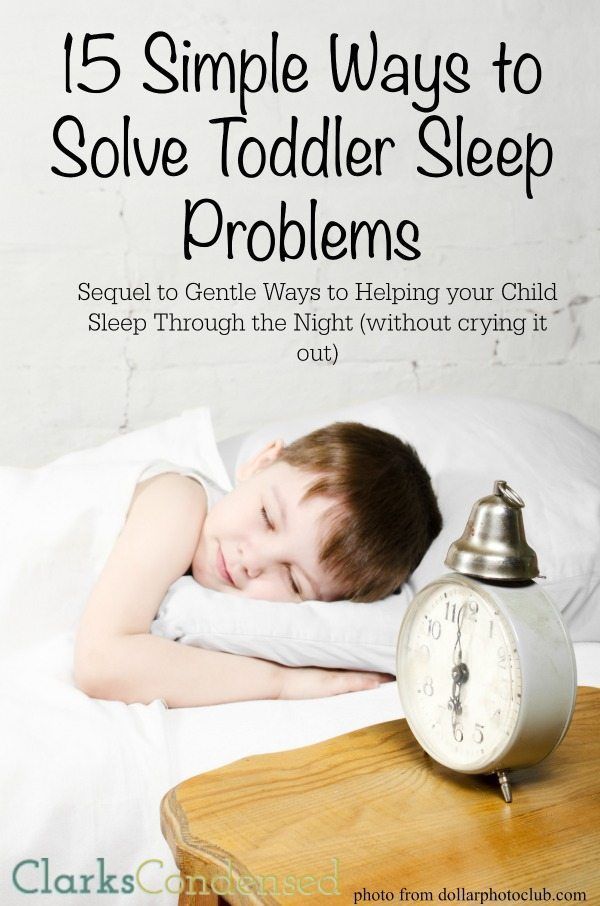
When it is necessary to wake up the child
It is important to wake up the baby in the morning if he has fallen asleep later than 7.00. This is especially true for children who still sleep 1-2-3 times during the day and have already developed a relatively stable routine. So you create the perfect routine in the morning.
After waking up, children need time to work up their fatigue for their next nap, the ideal window for which is around 9 and 1 pm (depending on age).
Therefore, if the baby slept until 8 am, he simply will not be able to fall asleep in his first daytime sleep.
In order for the baby to wake up calmly without tears, you can enter a wake-up ritual. It allows the child to smoothly transition from a sleepy state to wakefulness.
Example of a wake-up ritual:
- Open curtains/turn on lights
- Welcome words and a kiss
- Snacks, nursery rhymes after sleep
- Happy song
Then you can get up and start breakfast. For older children, such a ritual is also necessary.
For older children, such a ritual is also necessary.
The awakening ritual has different purposes:
- Marks the end of sleep,
- Teaches a child that everyday sounds are not a reason to wake up,
- Helps prevent baby from crying when waking up.
It will also be useful to have a light alarm. If the baby wakes up early, he will stay in bed until he sees the light on the clock.
When to wake your baby up after a nap
Many babies from 4 to 8 months sleep three times a day.
In this mode, it is important to wake up the baby after the third nap no later than 17.00. The duration of this segment is about 45 minutes, but not more than an hour. Then you can easily put the baby to bed by 19 o'clock.
Transition to one nap
At the age of 15-18 months there is a transition to one nap. It can be long and take place in different ways.
For example:
In the morning, the baby falls asleep easily and sleeps up to 2 hours. But then it is difficult to put it in lunch. And by the evening without rest at lunchtime, he is already overworked and falls asleep with difficulty.
But then it is difficult to put it in lunch. And by the evening without rest at lunchtime, he is already overworked and falls asleep with difficulty.
So if this is your case, you can pick up the baby after 60-75 minutes. At the same time, move the start of the second sleep 15 minutes later. But if the baby sleeps for 1 hour in the morning and then it’s already difficult to fall asleep a second time, start putting him down only at lunchtime.
One nap after 2 years
Between 2.5-5 years, naps may disappear. Here again, the story described above is often repeated. It seems that the child falls asleep perfectly during the day, sleeps for a long time, but in the evening, laying down is delayed until 10-11 pm. The problem is that getting up early in the morning to the garden usually does not allow you to sleep the necessary 10-11 hours per night. And again, you will have to gradually limit the duration of daytime rest. Wake your baby up after 60 minutes first, then skip the daytime so your baby sleeps better at night.
Keep an eye on your baby while doing this. If he is calm in the evening and falls asleep easily, and wakes up later than 6 o'clock in the morning in a good mood, then you are doing everything correctly.
If you notice excessive moodiness in the late afternoon or regular awakenings too early, then it is worth giving the baby more time to rest at lunchtime.
Like this article? Rate:
Votes: 94
How to wean a child from night feeding, wean a child to eat at night
0-6 months
Article
5/5 3 reviews
A newborn baby eats at any time of the day, day or night. As the baby's digestive tract grows stronger, the interval between feedings gradually increases. Moms have a natural question: when and how should you stop night feedings so that the baby sleeps all night?
8 min.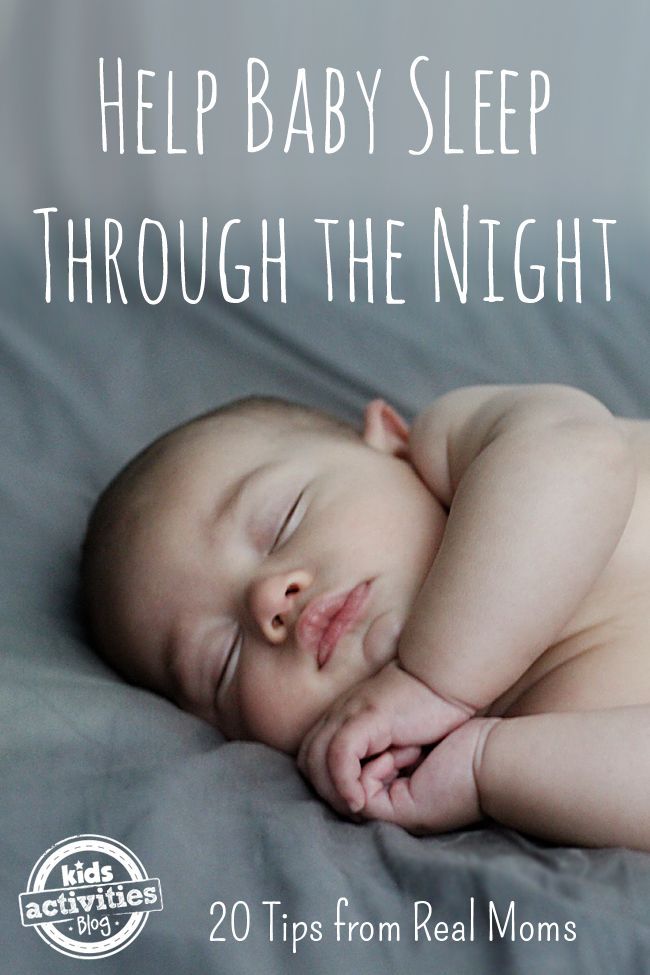 for reading Feb. 17, 2022
for reading Feb. 17, 2022
Contents
Should I feed my baby at night
How many nightly feeds does my baby need
- For breastfed babies, combination breastfeeders and babies with reflux
- Formula-fed babies
How to know if your baby is ready to give up nighttime meals
How to wean your baby from nighttime feedings: expert advice
FAQs
Sources
Is it necessary to feed a baby at night
Night feeding of a newborn is something that is so difficult for many new parents: it is difficult to maintain your own health, feel good and at the same time take care of the baby if you are chronically sleep deprived. But why can't a baby go without food at night?
In the first months, the baby does not have a clear regime, he still weakly distinguishes between day and night: during prenatal development, the baby is used to getting everything he needs from his mother at any time.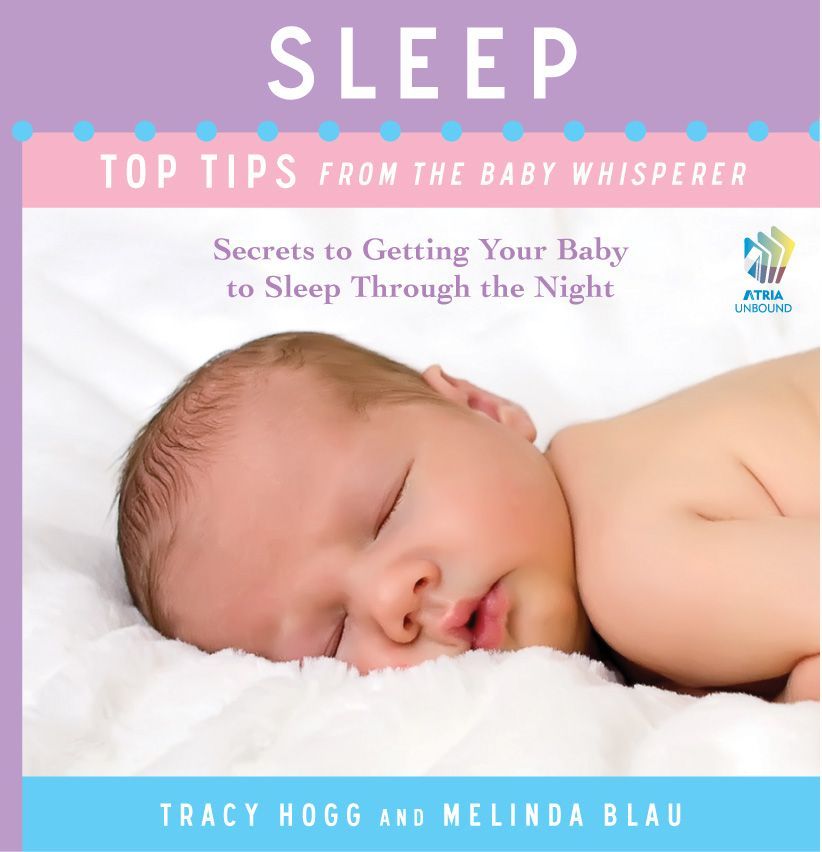 And most importantly - at the beginning of life, the child grows very quickly and requires a lot of nutrients, while having a small stomach and a still fragile digestive system. For these reasons, the baby cannot go without food for a long time and requires food approximately every 2-3 hours, and pediatricians, in turn, insist on the need for nightly breastfeeding of a newborn.
And most importantly - at the beginning of life, the child grows very quickly and requires a lot of nutrients, while having a small stomach and a still fragile digestive system. For these reasons, the baby cannot go without food for a long time and requires food approximately every 2-3 hours, and pediatricians, in turn, insist on the need for nightly breastfeeding of a newborn.
Important!
Sleep and eating habits, as well as the need for them, are individual for each child. Therefore, if it seems to you that the baby eats little and rarely, or vice versa - too often, consult with the doctor you are seeing.
In addition, night feedings, although they interfere with sleep, are useful not only for the child, but also for the mother. They help to properly establish lactation, because it is at night that the hormone prolactin is produced, which is responsible for the amount of breast milk.
Advice
With proper organization of night feedings, the baby eats half asleep and quickly falls asleep further.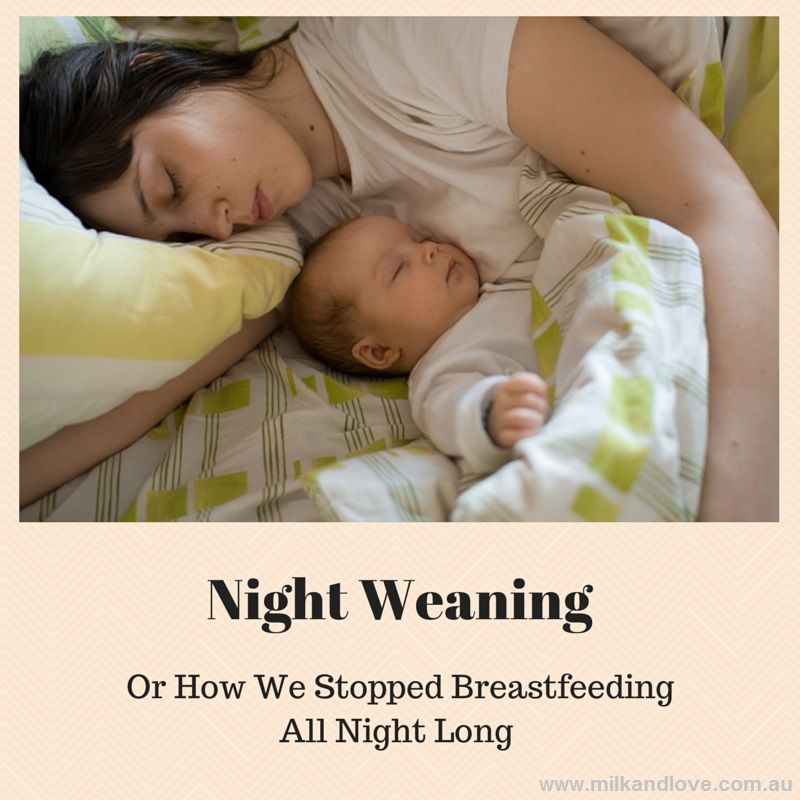 To do this, start a night light in the room and be ready to feed as soon as the baby wakes up. Sleep in comfortable nursing clothing if you are breastfeeding.
To do this, start a night light in the room and be ready to feed as soon as the baby wakes up. Sleep in comfortable nursing clothing if you are breastfeeding.
How many night feeds does a baby need
The smaller the baby, the more often he needs to be fed. But over time, the digestive tract gets stronger, and the baby can eat more and endure longer breaks between meals. Below is an approximate number of night feedings, depending on the age of the baby:
1. For breastfeeding, combination breastfeeding and infants with reflux:
| Age | Number of night feedings |
| 0-3 months | breastfeeding on demand approximately every 2-3 hours |
| 3-4 months | 2-3 times as required or every 3-6 hours |
| 5-6 months | 1-2 meals |
| 7-9 months | 1, possibly 2 times |
| 10-12 months | sometimes 1 feeding |
| 12+ months | usually without night feedings |
Important!
During growth spurts, your baby should be fed as needed. Such bursts occur approximately at 5, 8, 14, 19, 26, 37 and 46 weeks of life and last about 7 days.
Such bursts occur approximately at 5, 8, 14, 19, 26, 37 and 46 weeks of life and last about 7 days.
How do you know if your baby is ready to give up nighttime meals? After this period, the need for nightly meals depends on the pace of development, individual needs and the health of the child. If the baby was born prematurely or is not gaining weight well, experts recommend waking him up 3.5-4 hours after the previous feeding and offering the breast.
Advice
If you're not sure if your baby is ready to stop feeding at night, talk to your doctor. The specialist will help you understand and make the right decision based on the physical indicators of your child.
If the baby is healthy and is doing well with his weight, somewhere between 4 and 6 months, he begins to receive enough calories during the day so that he does not need to feed at night. In breastfed children, this process may be a little slower - up to 6–10 months [2].
It is also important to take into account that the refusal of nighttime "snacking" occurs gradually: there are very few cases when a child stops eating at night and immediately starts sleeping 5-6 hours in a row. Usually, babies who are used to eating several times a night wake up out of habit, and it will take time to change this routine. First, the baby will ask for food half an hour later than usual, then an hour, a little later - two, and so on. Step by step, over several weeks, night sleep reaches 6-7 hours in a row. This joyful moment can come at 4 months or closer to 12 months: all babies are unique, and it's not scary or unusual for an infant to sleep much longer without food, while an older child keeps waking up to eat.
Advice
Dentists recommend avoiding nighttime feedings for children over one year of age, as food leftovers in the mouth can damage baby teeth. This risk is minimal when breastfeeding.
Also, remember that your child has many other important needs.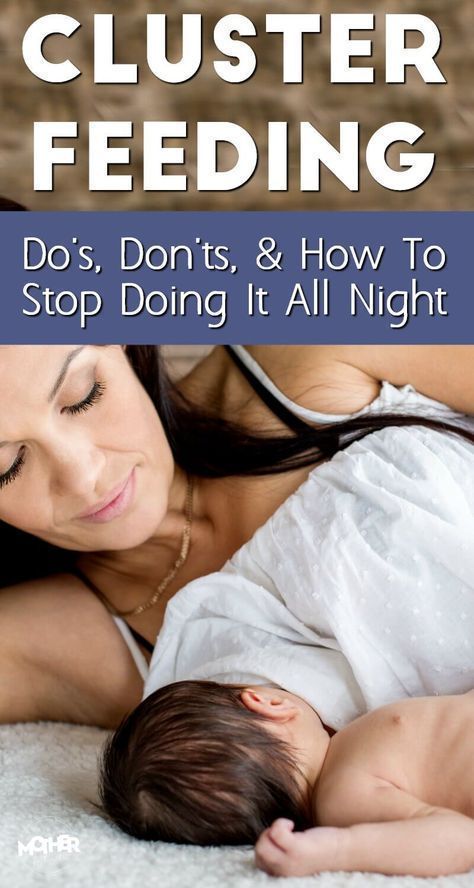 Perhaps he wakes up and calls you, not so much for food, but for comfort and closeness. What could be more reassuring and safer than the caring hands of parents who feed and cradle? feedings.
Perhaps he wakes up and calls you, not so much for food, but for comfort and closeness. What could be more reassuring and safer than the caring hands of parents who feed and cradle? feedings.
How to wean a child from night feedings: expert advice
Many parents are interested in how to properly wean a baby from eating at night so that it does not become a lot of stress for him. Especially if the baby stubbornly refuses to give up night feeding.
- Start the weaning process slowly and gradually. Slowly reduce your nightly breastfeeding time or give your baby less milk (mixture if formula-fed) from a sippy cup. Try to extend the intervals between
Important!
Under no circumstances should the issue of night feedings be turned into a battlefield. The “cry - stop - wean” method loosens the baby’s nervous system and can provoke severe stress.
- Make sure your child eats well during the day.
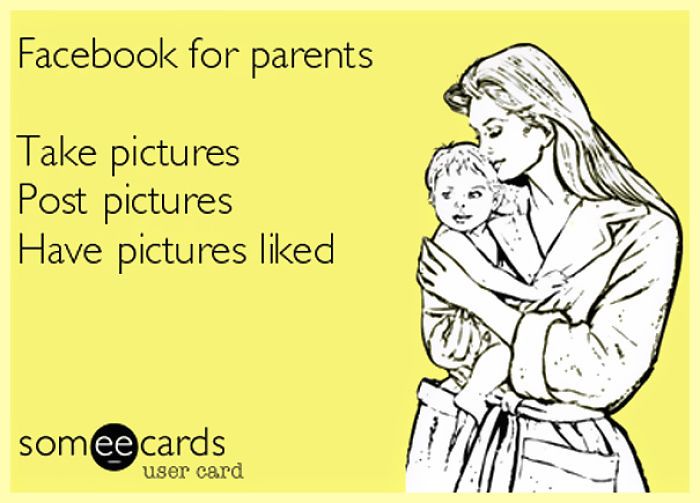 Babies become more active as they get older, and if they get carried away playing or walking, they may skip meals or not eat enough and then try to make up for it at night. Therefore, take scheduled breaks during the day for "silent feeding" in a place where nothing will distract the crumbs from eating.
Babies become more active as they get older, and if they get carried away playing or walking, they may skip meals or not eat enough and then try to make up for it at night. Therefore, take scheduled breaks during the day for "silent feeding" in a place where nothing will distract the crumbs from eating.
Advice
If you're not sure your child is eating enough, check their height by weighing them at the doctor's office.
- Try feeding your baby before bed. If a child goes to bed with a full tummy, they are less likely to wake up hungry in the middle of the night.
- Ask dad to get up at night with the baby. If an awakened baby hears your smell or the aroma of breast milk, this can provoke his appetite, even if the baby did not wake up because of hunger. If you sleep in the same room, it's best to move the crib to dad's side.
- Phase out feedings one at a time. When the baby wakes up to eat at night, go to him and reassure him, gently but firmly explain that now is the time to sleep, not eat.
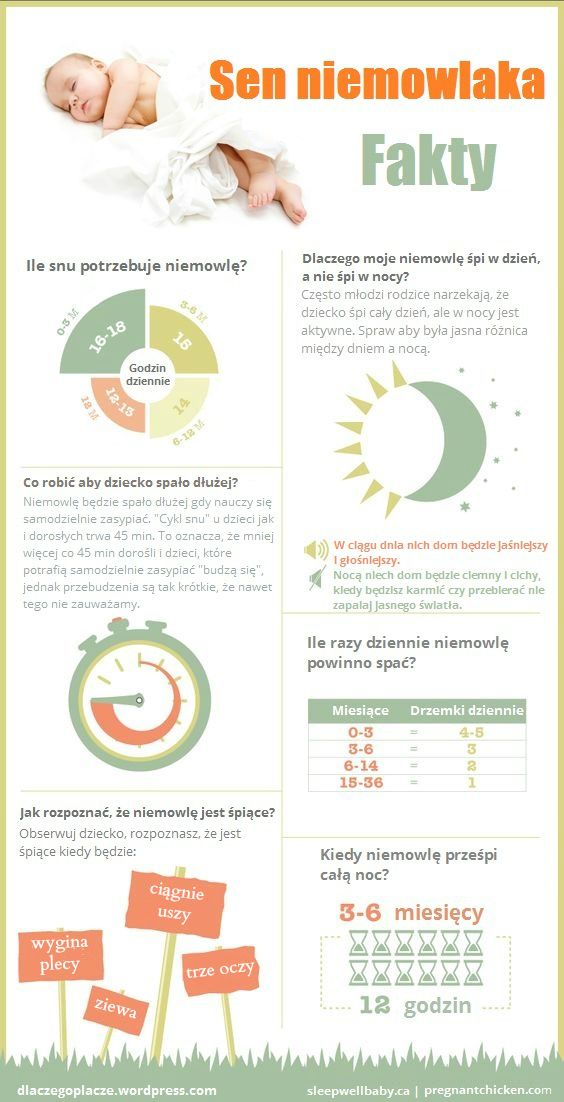 At the same time, pat and stroke the child on the back or tummy, but do not pick him up. Even if the baby does not yet understand your words, he gradually catches the meaning, and your presence and attention will be soothing to him.
At the same time, pat and stroke the child on the back or tummy, but do not pick him up. Even if the baby does not yet understand your words, he gradually catches the meaning, and your presence and attention will be soothing to him. - Try giving your baby water to drink. Babies may wake up at night not from hunger, but from thirst, especially in hot weather or in a room with dry air. If after half an hour the baby wakes up again, feed him, and if not, then he is full and satisfied.
- If the baby has been crying inconsolably when stopping night feedings for several days in a row, stop the attempt and return to your normal routine for a while. Let the baby calm down and start weaning him again in a week or two.
- Do not stop night feedings during the transition period. For example, when you are going to return to work or go on vacation without a baby. If your baby sees less of you during the day, try to hug and interact with him more in your free time. It is necessary that he clearly feels your connection and care, then the baby is less likely to seek solace in the middle of the night.

- If the baby continues to require night feeding, try to create conditions in which he does not want to eat. An excellent opportunity appears at 8-9 months, when the baby is already confidently eating complementary foods. To do this, move the usual bowl of porridge to the evening: this way the child stays full longer and may not ask for an extra portion of food at night.
Advice Do not give your baby new foods at night, introduce them only in the morning. Otherwise, you run the risk of observing the reaction to unfamiliar complementary foods instead of sleep. Also, do not give your child meat at night, it is hard to digest, can cause discomfort in the stomach and restless sleep. Also keep in mind that the decision to not feed at night depends in part on how it affects you. If you enjoy breastfeeding or drinking from a cup at night, there is no reason to stop: at a certain point, the baby will stop asking for food on its own. 1. How often should a newborn be fed? A newborn needs to be fed every 2-3 hours, i.e. 10-12 times a day. Further, the intervals between feedings gradually increase to 3-6 hours, and the child gets the opportunity to sleep all night. 2. How much should a child eat per day? The daily "portion" of food for the baby depends on his age and weight. From 10 days to 1.5 months, the baby needs such an amount of food, the weight of which is approximately 1/5 of the child's body weight. From 1.5 to 4 months - 1/6 of the baby's weight, from 4 to 6 months - 1/7, from 6 to 8 months - 1/8, from 8 to 12 months - 1/9. 3. What happens if you don't stop night feedings? Most likely, the child will eventually refuse them himself. Sources Child Development by Month Average Customer Rating 3 customer ratings Snapshot of community ratings 0-6 months Article Breastfeeding is a skill that absolutely every woman possesses at the level of reflexes. 0-6 months Article 0 reviews A few proven methods to trim the belly after childbirth . Follow simple recommendations, and soon you will return to your figure, which was before pregnancy. 0-6 months Article Breastfeeding is a process that has an extraordinary impact on the development and health of the baby. Pregnancy Article Human milk oligosaccharides are one of the most enigmatic components whose functions scientists have recently discovered. Find out what oligosaccharides are and what benefits they bring to your baby. 0-6 months Article A baby's daily regimen and, first of all, his feeding regimen is the foundation of his health. How often should a baby be fed? How do you know if he has enough milk? 0-6 months Article Lochia is a natural postpartum discharge. 0-6 months Article 0 reviews The problem of hair loss during lactation is quite common. This process is associated with a number of factors and is generally considered natural. Why does hair fall out after childbirth and how can I get rid of this problem? More on this later in the article. 0-6 months Article 0 reviews Mother's milk is the main source from which the tiny body receives nutrients and builds the foundation of immunity. 0-6 months Article Intestinal dysfunction after childbirth is a problem that all new mothers face. This is not a pathology, but a completely normal, understandable and temporary state of the female body. Why there is constipation after childbirth, when bowel function is restored and what to do to eliminate discomfort - more on this later in the article. 0-6 months Article 0 reviews Is it possible to get pregnant during lactation? There is an opinion that this is impossible. 0-6 months Article The key to a successful start to breastfeeding is the correct latch on of the nipple. Follow tips to help your baby latch onto the nipple and floor properly 0-6 months Article 0 reviews The resumption of intimate relationships after childbirth is an ambiguous question. On the one hand, after such a long abstinence, you want to have sex as soon as possible, on the other hand, there are a number of nuances that prevent this. 0-6 months Article Mothers usually start breastfeeding their newborn while still in the hospital. The physiology of the infant is well adapted to this. During the first feeding, the baby receives colostrum, which contains antibodies that fight infections. 0-6 months Article 0 reviews To be or not to be cucumbers and potatoes in the menu of a nursing mother? What vegetables can be eaten while breastfeeding, and which ones should be limited? 0-6 months Article 0 reviews If breastfeeding is not possible, express with a breast pump or by hand. 0-6 months Article 0 reviews The birth of a child is the most memorable and long-awaited event in life. When carrying it, the mother faces many difficulties, which, with the advent of the baby, it would seem, should decrease. However, it is not. After giving birth, a child requires a lot of time and attention, as well as round-the-clock care. During this period, its proper nutrition is especially important, on which the growth and further development of the little man depends. The best thing for him is his mother's milk. 0-6 months Article 0 reviews The appearance of a baby in the house is accompanied by both joy and feelings of young parents . 0-6 months Article The success of breastfeeding depends on several factors: choosing a comfortable position for mother and baby, some practice and proper attachment to the breast. 0-6 months Article 0 reviews The minimum interval between births, according to doctors, is 3 years. Carrying and giving birth to a child, breastfeeding - all this is a burden on the female body. But if you feel that lack of sleep prevents you from living and enjoying motherhood, and the baby is already physically ready for change, it's time to try switching to a daily routine. In any case, you should do what is best for you and your family.
But if you feel that lack of sleep prevents you from living and enjoying motherhood, and the baby is already physically ready for change, it's time to try switching to a daily routine. In any case, you should do what is best for you and your family. FAQ
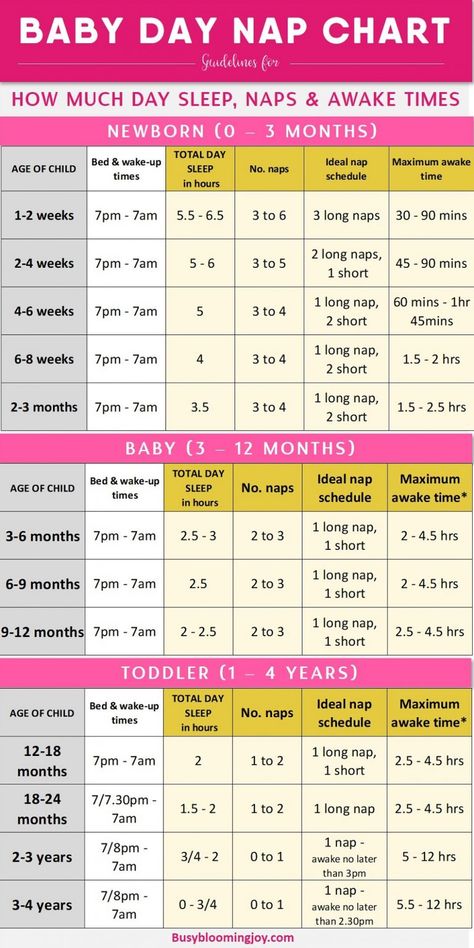 But some pediatricians, notably Richard Ferber [1], warn that unnecessary nighttime feedings can cause sleep problems. Also, food leftovers after late “snacks” can provoke the development of caries in milk teeth.
But some pediatricians, notably Richard Ferber [1], warn that unnecessary nighttime feedings can cause sleep problems. Also, food leftovers after late “snacks” can provoke the development of caries in milk teeth.
Related Articles
Latest Reviews
Recommended Articles
The correct start of breastfeeding is the key to a long and trouble-free lactation
 The problems faced by modern young mothers are much more often social and informational in nature, rather than physiological. Even a minimum of truthful information and self-confidence will help you start breastfeeding correctly and continue it for as long as your baby needs.
The problems faced by modern young mothers are much more often social and informational in nature, rather than physiological. Even a minimum of truthful information and self-confidence will help you start breastfeeding correctly and continue it for as long as your baby needs. How to remove the stomach after childbirth: TOP 8 tips
Alcohol while breastfeeding (LB): can I drink it?
 Since the relationship between the child and the mother is continuous, everything that has entered the body of a nursing mother will immediately end up in the baby's body.
Since the relationship between the child and the mother is continuous, everything that has entered the body of a nursing mother will immediately end up in the baby's body. breast milk oligosaccharides
Infant diet
Discharge after childbirth, or lochia: what a young mother needs to know
 They appear immediately after the placenta has passed and last for several weeks until the lining of the uterus is completely healed. What do lochia look like at different stages, what is the norm, and in what cases should you sound the alarm? And is it possible to speed up postpartum recovery?
They appear immediately after the placenta has passed and last for several weeks until the lining of the uterus is completely healed. What do lochia look like at different stages, what is the norm, and in what cases should you sound the alarm? And is it possible to speed up postpartum recovery? Hair loss during breastfeeding (HB): what to do?
Artificial feeding of newborns: some tips
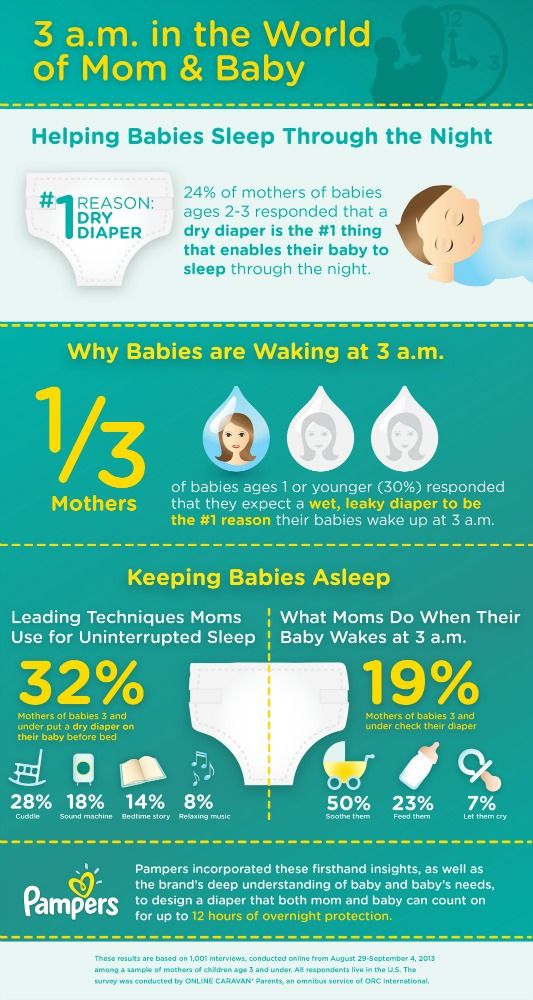 Therefore, breastfeeding is recommended by all pediatricians and neonatologists. This strengthens the bond with the mother and the immune system of the baby. However, it often happens that a young mother refuses breastfeeding. The reason for this may be a shortage or lack of milk or a doctor's recommendation.
Therefore, breastfeeding is recommended by all pediatricians and neonatologists. This strengthens the bond with the mother and the immune system of the baby. However, it often happens that a young mother refuses breastfeeding. The reason for this may be a shortage or lack of milk or a doctor's recommendation. Constipation after childbirth: what to do?
Breastfeeding Pregnancy (HB): First Signs
 However, in practice, such cases are not uncommon. How to recognize the first signs of pregnancy while breastfeeding and what are the risks? More on this later in the article.
However, in practice, such cases are not uncommon. How to recognize the first signs of pregnancy while breastfeeding and what are the risks? More on this later in the article. How can I help my baby latch onto the nipple?
When can you have sex after giving birth?
 When you can have sex after childbirth and what precautions you should take - read further in the article.
When you can have sex after childbirth and what precautions you should take - read further in the article. Breastfeeding: the first steps after childbirth
What Vegetables Can I Eat While Breastfeeding?
Storing breast milk: TOP 5 tips on how to store it
 And we will tell you what and how to store breast milk.
And we will tell you what and how to store breast milk. How to increase the amount of breast milk?
Constipation in a newborn: what to do?
 Each change in the behavior and condition of the baby alarms the mother, especially if it causes discomfort and tears in the baby. One such phenomenon is is constipation in a newborn .
Each change in the behavior and condition of the baby alarms the mother, especially if it causes discomfort and tears in the baby. One such phenomenon is is constipation in a newborn . Proper breastfeeding is the key to successful feeding.
Contraception during breastfeeding (HB): TOP-7 methods
